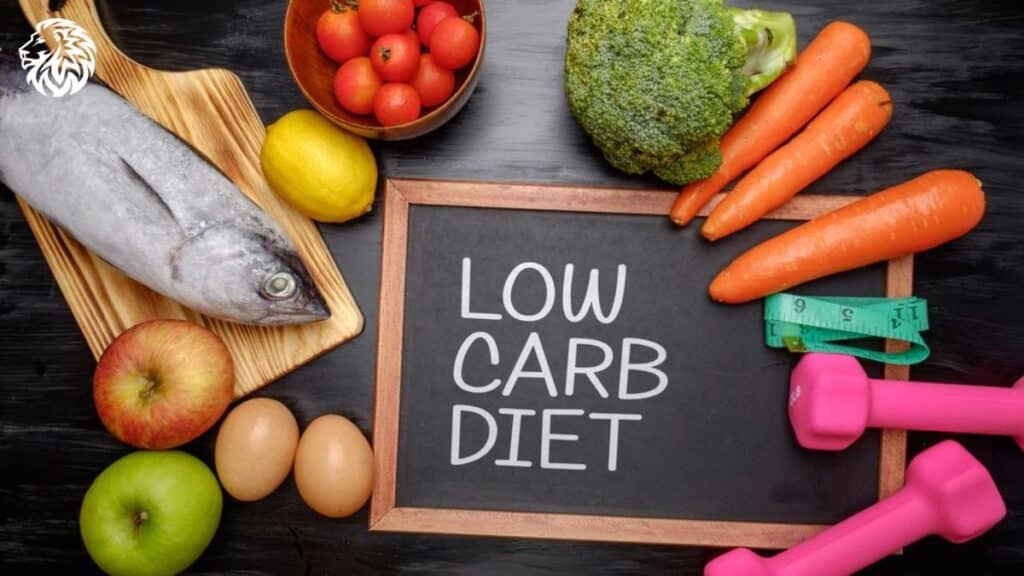Low-carb diets are much adored in the world of weight loss. They emphasize a cutback on carbs and an increase in protein and fat-rich foods. You’ve probably heard about some of these popular diets. The Atkins Diet, the Ketogenic Diet, and Low-Carb High-Fat (LCHF) diet are all very popular low-carb diets. The usual suspects like grains, legumes, fruits, breads, sweets, pastas, and starchy veggies get sidelined. But don’t worry, you’ll be welcoming in delectable alternatives like meat, seafood, eggs, non-starchy veggies, and a variety of healthy oils. So while your carb intake takes a backseat, your meals remain hearty and satisfying.
Whether it’s for health, fitness, or a little self-esteem boost, many of us have locked onto the target of shedding weight. The goal to lose 10 pounds is a common one, often seen as achievable and significant enough to notice physical changes. The journey to lose 10 pounds can vary greatly depending on individual factors, lifestyle, and the specific diet followed, such as a low-carb diet. This article aims to explore the typical timeframe required to lose 10 pounds on a low-carb diet and provides useful tips to enhance the process.
Understanding Weight Loss

If there’s one key idea to grasp about weight loss, it’s the concept of a calorie deficit. In plain language, to slim down, you need to torch more calories than you take in. Our bodies have a quota of calories needed to carry out the basic life-sustaining tasks, known as the basal metabolic rate (BMR). Any calories burned beyond this, through physical activity, add to this total. When you consume fewer calories than what your body needs for survival plus activity, you’ve created a calorie deficit. This nudges your body into burning stored fat for energy, and voila – weight loss happens.
Weight loss isn’t a one-size-fits-all process, and it happens at different rates for different people due to a variety of factors. These include:
- Age: Metabolism slows as we age, meaning older people might lose weight more slowly than younger ones.
- Gender: Men often lose weight more quickly than women because they tend to have more muscle mass. More muscle equals more fat burn.
- Initial Weight: People with a higher starting weight often lose weight more quickly at the beginning.
- Diet: Different diet types can lead to different rates of weight loss. Some diets, like low-carb diets, may lead to a rapid initial weight loss due to water weight loss.
- Physical Activity: Regular physical activity can increase the number of calories burned, thus accelerating weight loss.
- Lifestyle Factors: Factors such as sleep, stress levels, and daily routines can influence weight loss.
- Genetics: Some people may be genetically predisposed to lose weight more easily than others.
It’s important to remember that healthy weight loss should be gradual and steady. A common recommendation is aiming to lose 1-2 pounds per week, though this may vary based on the factors mentioned above.
Low-Carb Diets and Weight Loss

Low-carb diets work by changing your body’s main energy source from carbohydrates to fats. When you consume fewer carbohydrates, your body has to use its glycogen stores for energy. Glycogen holds onto water, so when it’s used for energy, it releases water, leading to weight loss.
This is the reason why people often experience quick weight loss in the first week of a low-carb diet as they lose water weight. Once your body exhausts its glycogen stores, it starts breaking down fat for energy. This can result in more sustained weight loss.
Furthermore, low-carb diets often lead to a reduced appetite. Proteins and fats, the primary nutrients in these diets, are known to cause more satiety than carbohydrates. This can lead to a natural reduction in calorie intake, facilitating a calorie deficit and weight loss.
Timeline for Losing 10 Pounds on a Low-Carb Diet
Just as in general weight loss, losing 10 pounds on a low-carb diet will be influenced by several factors. Age plays a role as metabolism slows with age, meaning weight loss might take longer for older individuals. Gender also impacts weight loss, with men often losing weight more quickly than women due to a higher muscle mass, which burns more calories. Your initial weight will also affect how quickly you lose 10 pounds – if you have more to lose, the first 10 pounds might come off more quickly. Lastly, physical activity can accelerate weight loss by increasing your caloric deficit.
Considering the various factors we’ve discussed and the generally accepted guideline of losing 1-2 pounds per week for safe and sustainable weight loss, you can guesstimate that waving goodbye to 10 pounds on a low-carb diet might take somewhere between 5 and 10 weeks. But hold on – some folks might see a quicker drop initially due to water weight loss, which could mean the first 10 pounds melt away in as little as 2-4 weeks.
Remember, these are just ballpark figures. Our bodies all march to the beat of a different drum when it comes to diet changes, and weight loss isn’t a steady downward journey – some weeks may see more progress than others. Plus, the scale doesn’t have the last word on your progress. You might notice your body shape morphing, your clothes fitting differently, or feeling more energetic even if the scale isn’t budging as quickly as you’d hoped. It’s always a good idea to chat with a healthcare pro or dietitian for personalized advice on your weight loss journey.
Realistic Expectations and Healthy Weight Loss

Setting realistic weight loss goals is crucial to maintaining motivation and ensuring health throughout the journey. Expecting to lose weight rapidly and consistently might set you up for disappointment and potential health risks. A slow and steady approach is more manageable and healthier in the long run. Setting achievable short-term goals can also be beneficial. For example, aim to lose 1-2 pounds per week, increase your vegetable intake, or establish a consistent exercise routine.
Rapid weight loss might sound appealing, but it can lead to serious health problems. Losing weight too quickly can result in muscle loss, nutritional deficiencies, gallstones, and other health issues. It can also impact your mental wellbeing, leading to potential eating disorders or a destructive relationship with food. Rapid weight loss is often unsustainable and can result in a cycle of “yo-yo dieting”, where you regain the lost weight and sometimes even more.
For sustained weight loss:
- Adopt Healthy Lifestyle Habits: Make lasting changes to your eating and exercise habits. This might include eating more whole foods, reducing intake of processed foods, and incorporating regular physical activity into your routine.
- Listen to Your Body: Pay attention to your hunger and fullness cues, and eat mindfully.
- Seek Support: Consider seeking help from a registered dietitian or a support group. They can provide valuable advice and encouragement.
- Practice Patience: Understand that weight loss takes time and there will be fluctuations.
- Focus on Overall Health: Rather than focusing solely on weight loss, aim for overall health improvements. This can include better sleep, more energy, improved mood, and other positive changes.
Tips for Successful Weight Loss on a Low-Carb Diet

A low-carb diet an effective tool for weight loss by itself. But if you combine it with regular physical activity you can increase its effectiveness. Exercise doesn’t just help burn more calories; it also tweaks your body composition so you’re losing more fat and preserving muscle. Plus, it comes with perks like boosting your mood, upping your energy levels, and promoting overall health. Find a type of exercise you enjoy and incorporate it into your routine for sustainable results.
Staying motivated is a key factor for long-term weight loss. Here are some tips to help:
- Set Realistic Goals: Break down your larger goal into smaller, achievable goals.
- Celebrate Small Wins: Don’t just focus on the scale – recognize other improvements like feeling more energetic or fitting into an old pair of jeans.
- Keep a Journal: Record what you eat, your exercise, and how you’re feeling. This can help you identify patterns and stay accountable.
- Stay Positive: Weight loss takes time, so maintain a positive attitude. Don’t get discouraged by small setbacks.
- Seek Support: Share your goals with friends, family, or a support group.
While transitioning to a low-carb diet, you might face some challenges. Here’s how to overcome them:
- Managing Carb Cravings: Initially, you might experience strong cravings for carbs. Eating plenty of protein and healthy fats can help curb these cravings.
- Dealing with the “Keto Flu”: Some people experience flu-like symptoms (fatigue, dizziness, headaches, etc.) when starting a low-carb diet. Stay hydrated, ensure you’re getting enough electrolytes, and consider a more gradual reduction in carbs if symptoms persist.
- Ensuring Nutrient Intake: With the reduction in certain food groups, it’s essential to ensure you’re still getting all necessary nutrients. Including a wide variety of low-carb vegetables, lean meats, and healthy fats can help.
- Social Events: Eating out or attending social events can be challenging. Check menus ahead of time, suggest restaurants with suitable options, or consider a planned, occasional deviation from your diet as long as you get back on track immediately after.
- Long-Term Sustainability: For long-term adherence, a low-carb diet should be viewed as a lifestyle change rather than a temporary diet. Find low-carb meals you enjoy and don’t view it as depriving yourself, but rather fueling yourself with wholesome, nutritious foods.
Conclusion
A low-carb diet can be an effective tool for weight loss due to its impact on appetite, calorie consumption, and the body’s use of different energy sources. While losing 10 pounds on such a diet varies between individuals, it may generally take anywhere from 2-10 weeks, influenced by factors like age, gender, initial weight, and physical activity. The importance of setting realistic weight loss goals and the potential dangers of rapid weight loss were also highlighted. Successful weight loss on a low-carb diet can be facilitated by regular physical activity, staying motivated, tracking progress, and overcoming common challenges.
Embarking on a weight loss journey? Keep in mind that patience, consistency, and a little self-love are your best travel companions. Weight loss is a marathon, not a sprint, and everyone’s body takes its own scenic route. Discover the road that suits you best, one you can tread confidently, and one that makes you feel good in your own skin. It’s not merely about shedding pounds, but nurturing a healthier lifestyle and a more harmonious bond with food. Keep your gaze on the broader health improvements, not just the fickle digits on the scale. You hold the power to transform positively, and every tiny step, no matter how minute, propels you closer to your goal. Stay the course and believe in yourself – you’ve got this!
Frequently Asked Questions
I’ve heard about “water weight” loss at the start of a low-carb diet. What does this mean, and is it permanent?
Your body burns through glycogen, which it has stored carbohydrates (for energy), when you first start a low-carb diet. About 3–4 grams of water are retained per gram of glycogen. Thus, releasing the water that the glycogen had been holding along with its use results in a quick loss of weight. Losing “water weight” is a common term for this. But this kind of weight loss isn’t long-lasting. The rate of weight loss typically slows down once your body gets used to the diet and begins burning fat for energy.
Will my weight loss be consistent each week on a low-carb diet?
Weight loss isn’t typically a linear process. Some weeks, you might lose more than others, and there might even be times when your weight temporarily plateaus or increases. This is completely normal and can be influenced by many factors such as fluid fluctuations, muscle gain, and hormonal changes. The key is to focus on the overall downward trend in your weight over time.
I’ve hit a weight loss plateau on my low-carb diet. What should I do?
Weight loss plateaus are common and can be discouraging, but don’t lose hope. First, reassess your eating habits to ensure you’re still maintaining a calorie deficit and not consuming hidden carbs. Incorporating or increasing physical activity can also help break through a plateau.
Is it okay to cheat occasionally on my low-carb diet?
While sticking to your diet plan as closely as possible will yield the best results, occasional deviations are part of life. If you choose to have a “cheat meal”, try to plan it in advance. Be mindful of your portion sizes, and get right back on track with your next meal. The key is not to let one indulgence derail your entire plan.







